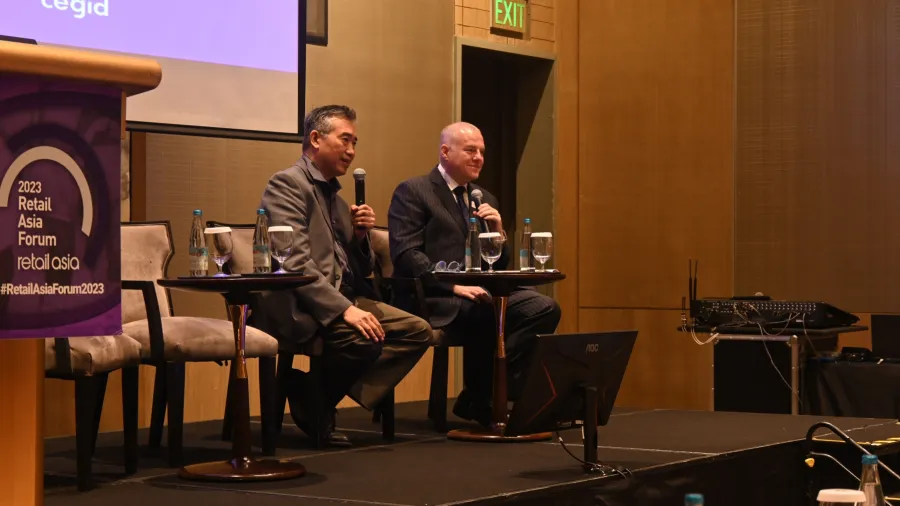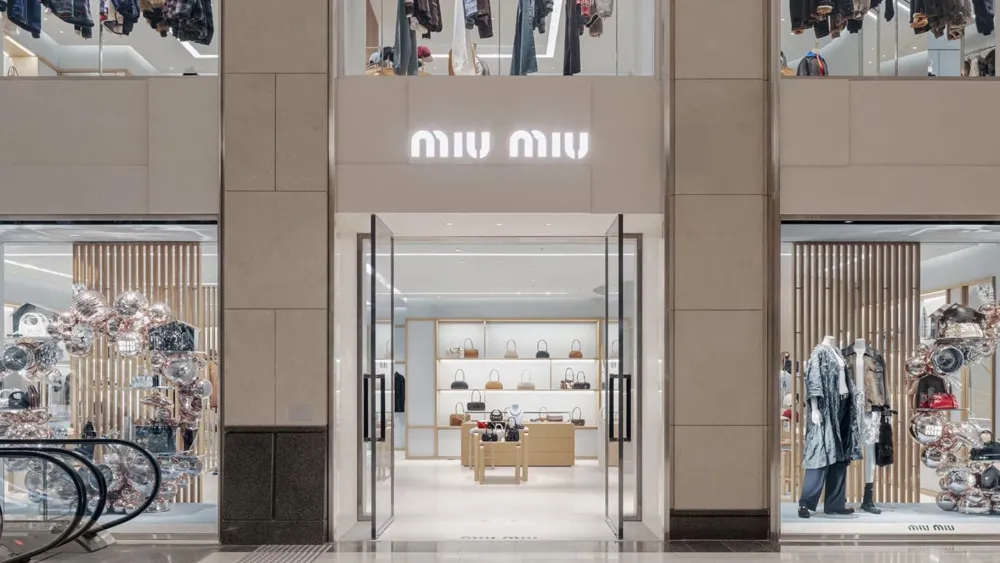
ACE Hardware Philippines stays 'Helpful' to remain competitive
CEO Bernard Ong spoke about how vital a branding position is in ensuring retailers keep their relevance in the market.
One thing that helped ACE Hardware Philippines stand out amidst the competitive market is consistently delivering on its brand promise of being Helpful across all its channels and services.
In a Fireside Chat with Retail Asia Editor-in-Chief Tim Charlton, ACE Hardware Philippines President Bernard Ong said retailers do not only need to adapt to technology to stay relevant but also be "crystal clear" about their company's positioning.
ACE Philippines ensures that all their staff undergo online training to deliver “ACE Helpful”. Then they track, coach and reward Helpful performance.
"The ACE brand is about being Helpful. As the world has evolved, we want to make sure that we stay Helpful - whether you are buying from us on the phone, online, or in-store," Ong shared at the Retail Asia Forum in Manila.
"In the end, it is not enough to have a brand promise, which is what branding is all about. But the whole company has to be able to deliver that promise. You must ensure your brand identity is the same whether in the physical store or the digital. You must also ensure that anything you promise digitally is delivered physically, whether it is products, delivery, or after-sales services." he added.
Ong also shared more on the importance of differentiation for retailers to stay competitive:
Why is branding so important in the digital age?
There is so much more competition. With all the clutter and choices in the marketplace, you need to stand out in order to win. Distinctive branding is a way to capture the advantages your competitors might not have.
First, it allows you to drive repeat traffic. It reduces your marketing costs when loyal customers keep returning to your stores. Secondly, it opens new business opportunities. You can move into other spaces when you have a strong brand. You could be invited into partnerships. Lastly, which I think is the most important advantage, the scarce resource in retailing is talent. Strong, differentiated brands allow you to hire and retain the best people.
Let's talk about instances where brands have successfully implemented a differentiation strategy.
If you look historically, retailers everywhere around the world have employed one of these three generic strategies captured in the book The Discipline of Market Leaders: Either you are good with customer intimacy, product innovation or operational excellence.
Home Depot in the US is very good with customers. They get up to 80% of their sales in the morning because that is when their primary market – professional contractors – show up to buy supplies for the day. Nike is a good example of product leadership - producing one innovative product after another.
In the digital world, it is not enough anymore to be good at only one of those. You need to be good at two, preferably all the three disciplines.
A good case study is the apparel brand SHEIN. In terms of customer intimacy, they use AI and social media to spot trends. Regarding product innovation, they are faster than anyone else in converting trends into products. In terms of efficiency, they keep costs low by selling online – avoiding costly mall rent. What SHEIN has managed to do in the fast fashion industry is that they are faster and cheaper than just about anyone else.
Which of those or both are you going to take for ACE?
For ACE, we are strong in customer intimacy. We innovate in areas like private label, formats, processes, and organization.
Operational excellence is the main challenge. One of the biggest issues facing most Philippine retailers is that we have all these islands, resulting in high logistics costs. This is true even online which requires delivery.
How do you address the logistical challenges whilst managing costs?
The first step is to measure costs correctly. In the past, we used to treat the logistical costs as one national number. Now we use data and classify different islands and regions into zones. This allows us to do a zonal profitability analysis. Unsurprisingly, some bulky low-value products have logistics costs even higher than their selling prices.
Using zonal analysis, we arrived at four generic strategies to manage extreme logistics costs. First, look for alternative compact products. Second, look for suppliers who can deliver directly to our stores in remote zones. Third, apply zonal pricing to recover higher costs. Finally, discontinue unprofitable products. We’re trying all these approaches.
How can you breathe life into a brand? What specific roles do different functions within a retail organization?
Great differentiated brands fully align with the entire company to deliver on their promises.
Branding is a company-wide effort. Marketing articulates and communicates the brand. The rest of the company has to deliver. In the case of retailers, the merchants have to find the products that deliver on the branding. Demand and Supply planning has to order the right products in the right quantities to be delivered to the right stores at the right time. HR has to hire the right people who can embody your brand.
You were telling me how important it is to be Helpful, and that's one of the key brand propositions. To do that, can you tell us what training you do for everybody in the store to be helpful?
We have online training courses. We have Helpful 101, which is required for everyone, Helpful 102, which is more advanced, Helpful 201, which is for supervisors to coach their staff on how to be helpful, and Helpful 202, which is the more advanced coaching.
Testing is built into these online courses. Stores have a 100% target for training completion. We test through customer surveys if the stores deliver what was taught. If the store meets standards, it is then Helpful-certified.
Beyond training, we try to build a culture where Helpful is a way of life – with customers, with colleagues and with communities we serve.
How do you differentiate while staying true to your brand identity and core values?
Brand vision should go beyond profits. Numerical targets don’t inspire passion from staff or engagement from customers. Your brand should be about a purpose that is higher than profits. That is the way to make the brand endure, so you do not have to keep evolving the brand as the world changes.
In the case of ACE, we “exist to help others”. That is our DNA. It is so simple yet highly differentiated.
What makes ACE Hardware Philippines unique among hardware retailers available online, especially with brands in the same marketplaces?
We have curated some unique products – both under the ACE label and exclusive partner brands – that are very differentiated and work well online.
Now, let's talk about SKUs. What's your approach to that?
Right now, we still have too many SKUs. I am a big fan of this US brand called Trader Joe's. Trader Joe's is the most productive grocery retailer in the US. The number two in terms of sales per square foot has only half of their productivity. Their secret is limiting their SKUs to about 2,000 in a store of about 1,000 square meters.
Beyond assortment, Trader Joe's seems to do the opposite of everything we preach and practice as retailers in the Philippines. Trader Joe's does not discount, does not do promotions, does not advertise, has no loyalty program, and has no e-commerce sales. Yet they are so successful because they are so clear with their branding and so consistent with delivering their promise to core customers.
How many SKUs would you have in a typical ACE store in the Philippines?
For our typical store, we have maybe 25,000 active SKUs. Consumers only need 4,000 to 5,000. We have too much duplication.
If you look at Costco, their store is 13 times the size of an ACE Philippines Store. They only have 4,000 SKUs. It is a journey to sharpen assortment with curated choices.
How do you ensure that your digital and brick-and-mortar presence complement and not just mirror each other?
First, we avoid deep online discounting that undermines our brick-and-mortar stores. Then we refine our assortment. What we've found is that while we can theoretically list more SKUs online, what works is having a narrower focus.
We study what sells online versus offline. We keep curating, taking products out when they don’t move. Sometimes something works digitally, but not physically, and the other way around. We have to ask why. What can we learn? What works? How do they complement each other?
Long term, the way to go is omnichannel using stores as last-mile pickup/delivery points for online, and likewise using online catalogues to enable physical stores to expand their offers beyond what is on display on the shelves.
How many stores do you have currently? Where do you what do you think you can grow in the next 10 years?
We currently have 241 stores. We could get to 300 to 400 based on market opportunity. A major opportunity is in smaller-format community stores. These are smaller stores near communities that offer the convenience, speed and low delivery costs that customers want. We have roughly 90 community stores today. There is room to serve more communities.



















 Advertise
Advertise







